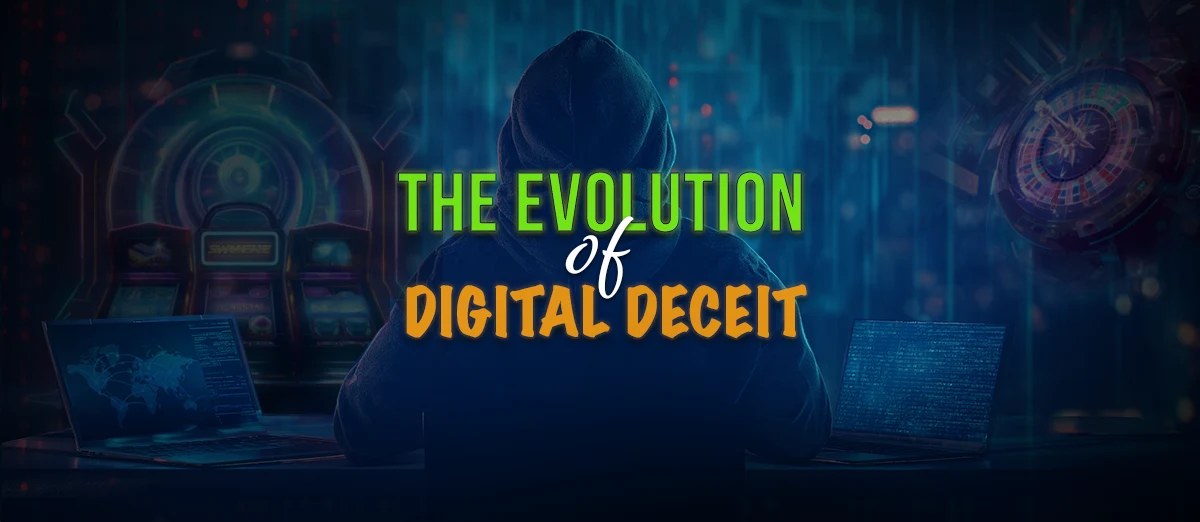R. Paul Wilson On: Modern-Day SIM-Swapping Fraud

Each year, fresh iterations of traditional scams emerge despite technology firms' efforts to fortify security protocols. The Achilles' heel of any safeguard, however, lies in the human element. Even the most robust systems possess a finite window of resilience due to human fallibility, susceptibility to psychological manipulation, and the cunning scams of seasoned con artists. Notably, a breakthrough in cellular technology has unveiled vulnerabilities in two-step authentication methods previously perceived as impervious to exploitation.
Frank Abagnale's Ingenious Scam
One of Frank Abagnale's most notorious schemes involved impersonating a security guard to pull off a clever scam. He would rent a uniform, craft a sign with a bank's logo, and purchase a lockbox. Then, positioning himself outside a night dropbox, he'd pose as a guard, claiming the box was out of order and asking individuals to hand over their deposits. Remarkably, people complied, entrusting him with their cash, checks, and credit card receipts. In those days, these items were sealed in zippered pouches and dropped at the bank after hours, making Abagnale's ploy incredibly effective.
This exploit exemplifies Abagnale's criminal ingenuity, showcasing how he managed to pilfer hundreds of thousands of dollars without resorting to violence or intimidation. The success of such cons lies in its simplicity and the manipulation of human nature. People, encountering someone in a uniform with a plausible story, often fail to question the legitimacy of the situation.
For instance, during the production of my TV show, "The Real Hustle", my team and I recreated Abagnale's scheme with astonishing success. Clad in makeshift uniforms and armed with a fabricated story, we effortlessly convinced unsuspecting individuals to hand over their money. The psychological factors at play-timing, social pressure, and the appearance of legitimacy-made it nearly impossible for anyone to question our motives.
Moreover, the ubiquity of uniforms in various professional settings underscores their potential as tools of deception. A simple fluorescent jacket or vest can confer an air of authority, enabling individuals to manipulate situations to their advantage. In one experiment, I demonstrated how donning an unremarkable uniform allowed me to collect cash under false pretenses in a parking lot, exploiting the trust of unsuspecting victims.
While some may dismiss such a tactic as outdated, it's essential to recognize the underlying principles that render it effective. As someone deeply immersed in the world of cons and sleight of hand, I've observed firsthand how individuals can be duped by seemingly absurd scenarios.
Exploring the Evolving Mechanisms of Deception
My exposure to magic and con games from a young age sparked a lifelong fascination, eventually leading me to explore the psychology behind deception. In my experience, the power of deception extends far beyond physical disguises. Whether it's a carefully crafted narrative, a familiar voice, or a convincing video call, the mechanisms of manipulation remain constant. Just as Abagnale exploited trust and authority with his uniform, modern-day scammers leverage technology and various tactics to exploit vulnerabilities.
The relevance of Abagnale's tactics extends beyond mere anecdotes-they serve as cautionary tales for businesses and individuals alike. In today's interconnected world, where trust is often assumed rather than earned, anyone can fall victim to sophisticated scams. Whether it's deepfaked impersonations or a convincing online persona, the threat of deception looms large.
Modern variations of scams often flood news articles and social media posts, purportedly warning the public about a 'new' scam. However, these accounts often obscure the actual method of fraud amidst lengthy narratives focusing on the victims-their profession, age, and emotional response-leaving scant details about the actual mechanics of the scam.
One such example is 'sim swapping,' a misleadingly named scam targeting individuals with a sophisticated multi-step process that circumvents two-step verification protections on online accounts.
The modus operandi of this scam can vary, but its objective remains consistent: obtaining enough information to intercept authorization codes and gain unauthorized access to online accounts. Initially, scammers persuade victims to grant access to a trusted device, often employing virtual desktops or key-logging software disguised as legitimate assistance from a fake help desk.
Phone calls impersonating banks or cell phone providers exploit various vulnerabilities, preying on individuals ignorant of modern scams, susceptible due to mental or age-related factors, or simply unlucky enough to recently engage with their bank, mistaking the call for a genuine follow-up.
Once trust is established, scammers coax victims into online interactions, offering seemingly innocuous downloads that surreptitiously record passwords and keystrokes, enabling the hijacking of accounts.
The Growing Threat of SIM-Swapping Scams
A notable incident involved Jim Browning, a YouTube personality renowned for exposing fraudulent help desks. Browning intercepted a VOIP call between a scammer and their victim. The scammer induced panic by falsely claiming the victim's bank account had been emptied, ultimately dispelling the illusion and preventing financial loss. The most shocking part is some time later a scammer was able to dupe Browning into deleting his YouTube channel.
The emergence of virtual SIM cards (eSIMs) has further complicated matters, allowing scammers to remotely redirect phone messages after setting up a new SIM card. Stolen passwords and login data facilitate this process, as authorization codes intended for the victim's phone are rerouted to the new SIM card, often located thousands of miles away.
In essence, once scammers manipulate victims into installing malicious software and divulging passwords, they exploit this information to acquire a new eSIM, redirecting vital authentication codes and swiftly gaining unauthorized access to accounts while rendering the victim's phone inactive.
In 2024, statistics surrounding SIM-swapping scams reveal a concerning trend of increased sophistication and frequency. Reports indicate a surge in incidents globally, with perpetrators leveraging advanced techniques to bypass security measures. According to cybersecurity experts, the number of reported cases has risen by 300% compared to the previous year, highlighting the growing prevalence of this form of fraud.
Moreover, the financial impact of these scams has reached staggering proportions, with losses totaling untold millions of dollars. Despite efforts to raise awareness and implement countermeasures, such as improved authentication protocols and fraud detection systems, scammers continue to adapt and evade detection. The evolving nature of technology, coupled with the widespread use of mobile devices for financial transactions, underscores the need for proactive measures to mitigate the risks posed by SIM-swapping scams in today's digital landscape.
Challenging Perceptions in the Digital Age
This underscores the recurring theme of hustlers masquerading as trusted entities, exploiting victims' lack of skepticism. The pivotal pause for critical thought, universally present in encounters where potential victims thwart or unmask con artists, remains conspicuously absent when individuals fall prey to scams of any nature.
So, the next time you encounter a seemingly trivial con like Abagnale's Dropbox ruse, consider its broader implications. In an era defined by technological advancements and evolving forms of communication, the line between reality and deception has never been more blurred. As Frank Abagnale demonstrated decades ago, a well-crafted illusion can deceive even the most discerning individuals.








Review this Blog
Leave a Comment
User Comments
comments for R. Paul Wilson On: Modern-Day SIM-Swapping Fraud